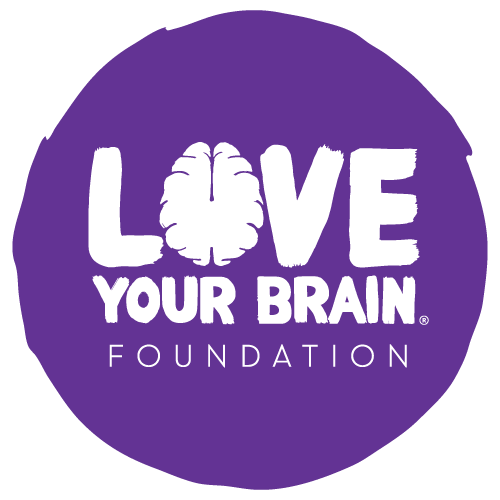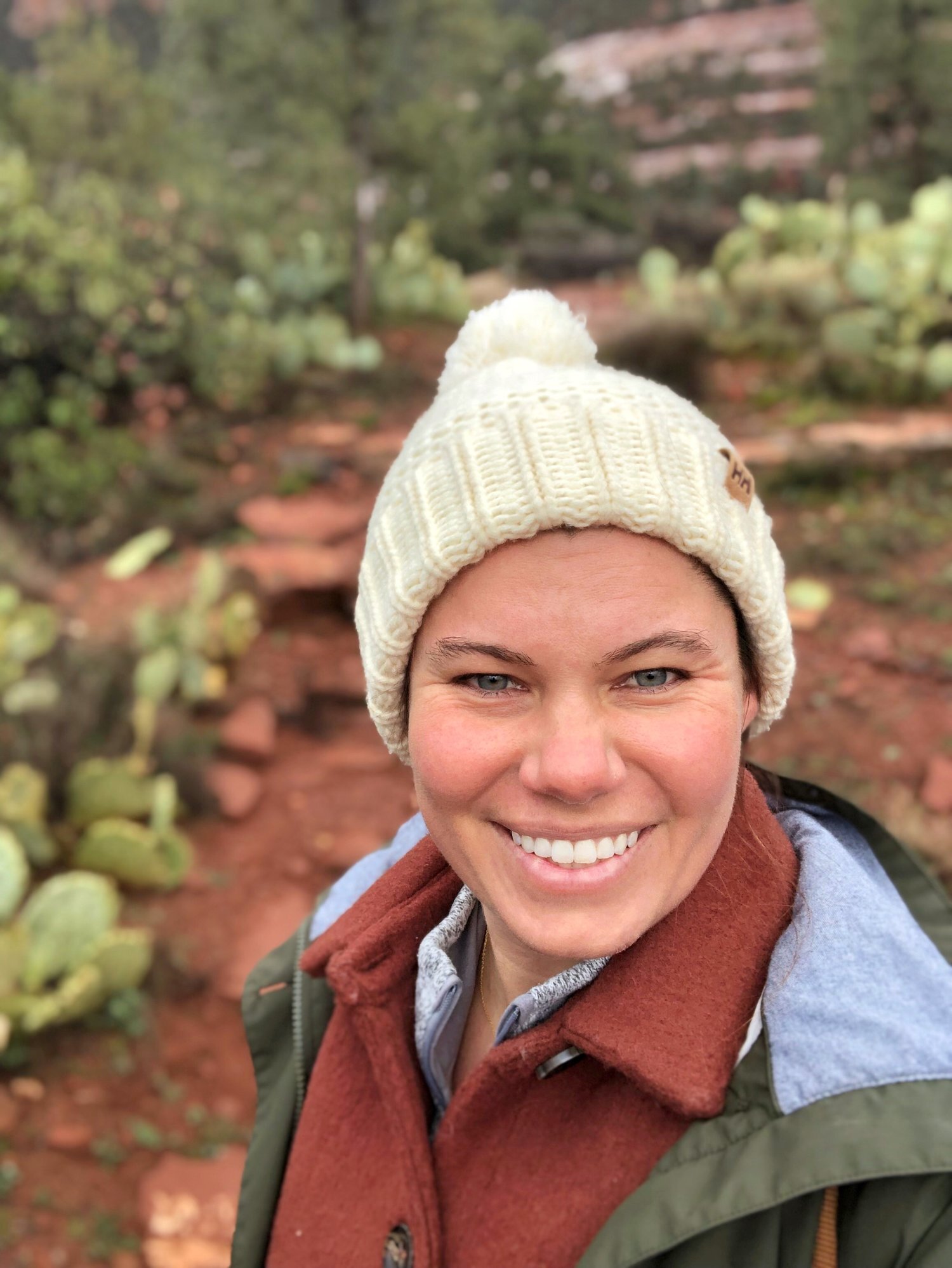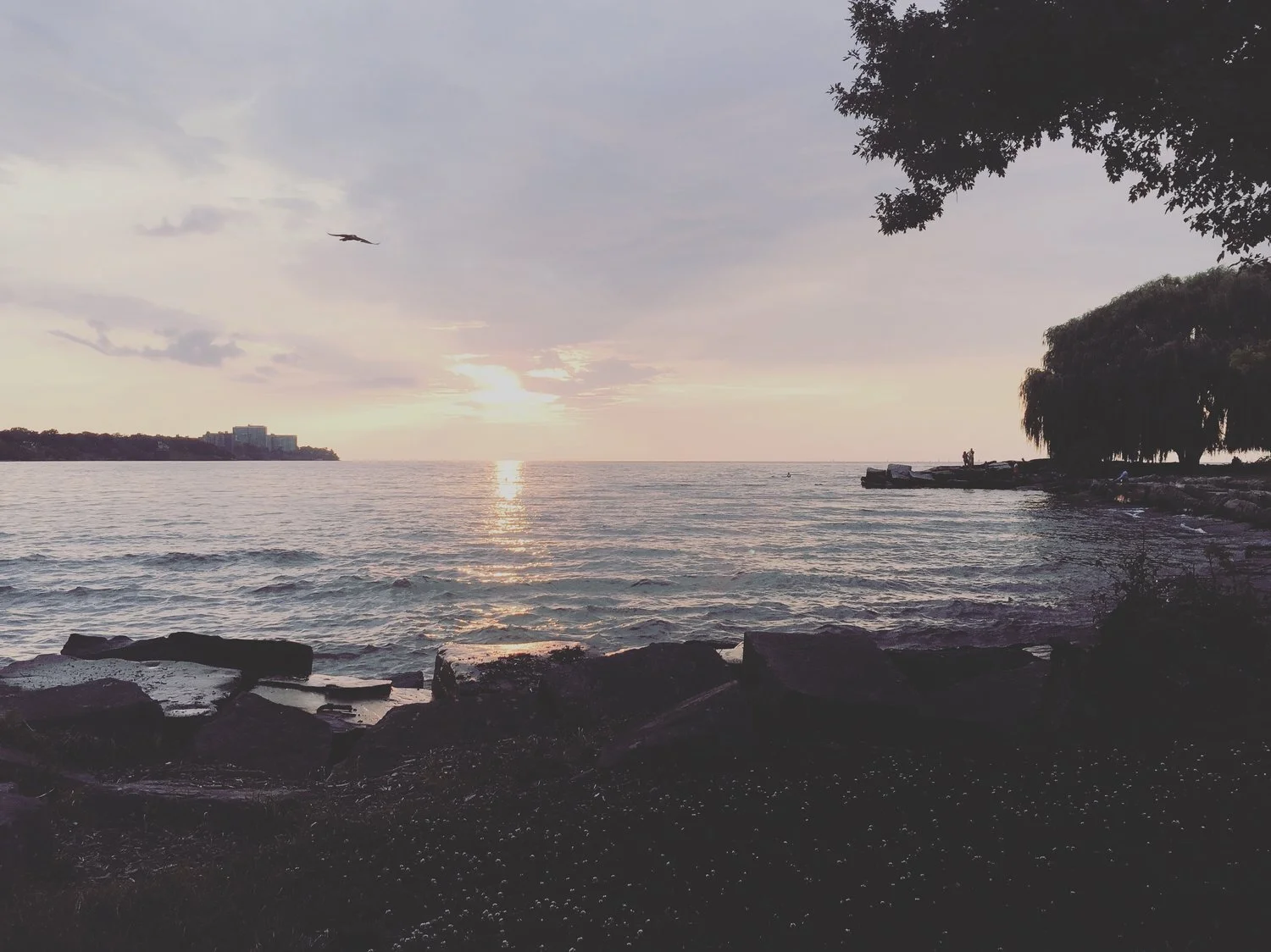In Loud Silence by Ashley Shaw
Hiking in Joshua Tree National Park. One of my first memories after the crash.
It was a month after my accident and I was boarding a plane to Los Angeles with my best friend. We had planned this trip months earlier and I insisted on going even though I was not well. What I didn’t know at the time was that a trip to the desert would be exactly what I needed to start healing. We spent a week in Joshua Tree mostly resting and hiking. I woke up early every morning and took a walk by myself through the silhouette of Joshua trees while the sun rose over the desert. This trip is significant because it is one of the first things I remember after the accident. I think having these new experiences encouraged my brain to start rewiring itself.
A month earlier I had been biking home when a distracted driver turned into me, causing me to fall and sustain a subdural hematoma (a brain bleed). I don’t remember much from those first few days after the crash except for the silence. I didn’t realize it at the time, but I wasn’t having any thoughts. Everything was silent inside my brain. While the nurses were telling me that I may need to have brain surgery, I was texting videos of my hospital socks to my boss. Looking back, it is so scary to think about my brain just shutting down but it probably saved me to not actually be able to process the severity of what I was about to experience. That silence will always stay with me.
The view we woke up to our last morning in Norway, one year after the crash.
For the first four months or so, I had a hard time forming sentences and getting words in the right order when I would write (and sometimes still do). I was noticeably slow and delayed when I spoke. I was easily overwhelmed in social settings and sometimes still am. I am sensitive to noise and too much stimulation or stress can cause a cognitive crash – a setback that will last a month or two. I regularly get headaches, nausea, and fatigue to the point that I can’t move. My brain can’t process what it sees in my peripheral so I run into things and trip a lot. PTSD impacts me almost daily.
I share these symptoms because traumatic brain injuries (TBIs) are mostly invisible and that can make recovery incredibly isolating. When you appear healthy, people around you have a hard time understanding what you’re going through. I feel fortunate to have had so much support from my family, friends, and employer, but it can still be so lonely and frustrating sometimes to be the only one who knows what this feels like.
This is Desmond. He is always right by my side.
My recovery began with a prescription for morphine, an anti-depressant and an order from the neurologist to “not work too hard.” I spent months discouraged that I wasn’t getting better. In fact, my symptoms continued to get worse. It wasn’t until someone told me that you have to advocate for yourself that I began to learn about the many holistic approaches to TBI recovery.
My best friend, Sam. I can’t fit all the ways she’s been there for me in this caption, but she’s the best! Having a strong support system is so important during TBI recovery.
The first thing to truly help me feel better was a weekly restorative yoga class at a yoga studio in my neighborhood. Currently, my routine includes daily supplements, an anti-inflammatory diet, exercise, sauna visits, Epsom salt baths, and a lot of rest. I don’t drink alcohol anymore. I avoid loud places and always keep ear plugs in my pocket. I have sought out other people who have experienced TBIs, both in my community and also on social media, which has helped me understand and normalize this experience.
It took everything in me to get through that first year, so I planned a trip to Iceland and Norway the week of my crash to give myself something to look forward to. I plan to take some time away each year to reflect back on how far I’ve come.
My most recent trip to the mountains - hiking in Sedona.
It has been 18 months since the crash. I still push myself too hard at work and am trying to find a balance that better prioritizes my health. I haven’t figured out how to address the PTSD yet. I imagine it will be something that takes a long time to overcome. Every few months, I try to plan a trip to slow down, spend time in nature, and focus on my health. When I can’t get away, I will take my dog for a long walk or spend the afternoon at the beach to ease my mind. Finding time to get outside in nature is so important when I am feeling overwhelmed and burnt out.
Recovering from my brain injury has been the most difficult thing I have ever experienced, but I would never take it back. Something really unexpected happens when you have a close call with your life. It puts the important things into perspective and you hold onto those things so tight. I value my life, my experiences, and my relationships in a completely different way than I did before. My life now is simple and slow, but so much more meaningful.
I lost the person I was the night of the crash and I spent a long time grieving that loss. But, it is an incredible opportunity to be able to rewire your brain in an intentional way, choosing to focus on the connections that you want to make and let go of the ones you don’t.
The beach near my house and one of my favorite places.
I first learned about the LoveYourBrain foundation when I was researching things that might help with my recovery. I am excited to attend the LoveYourBrain retreat in May and to learn how I can use yoga and an anti-inflammatory diet to help with my recovery. I am also looking forward to meeting other people who know what it’s like to live with a TBI.






